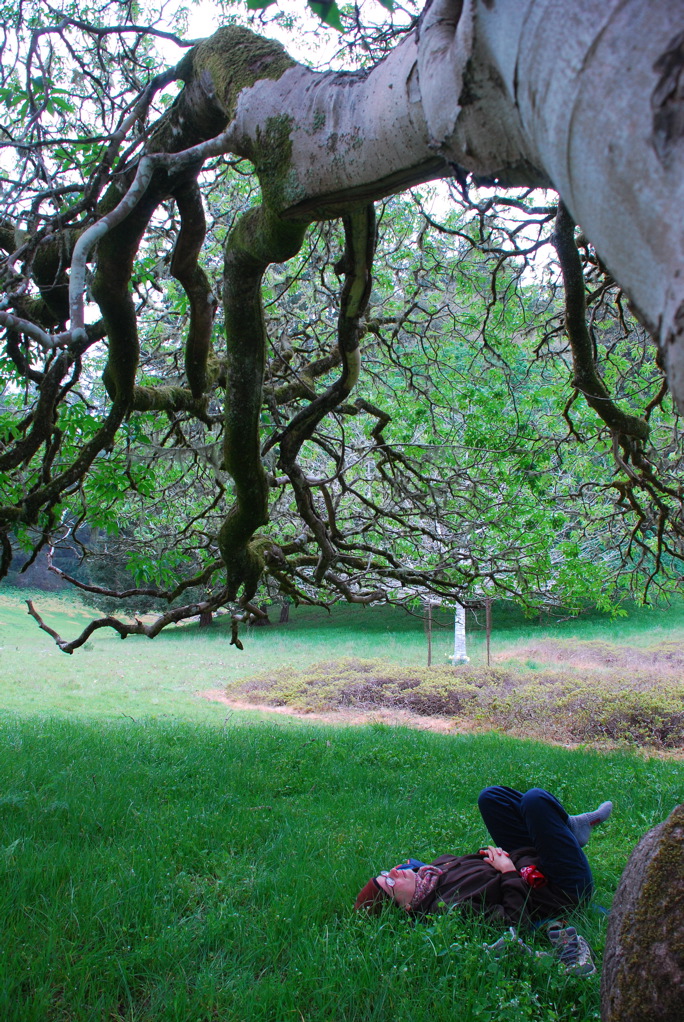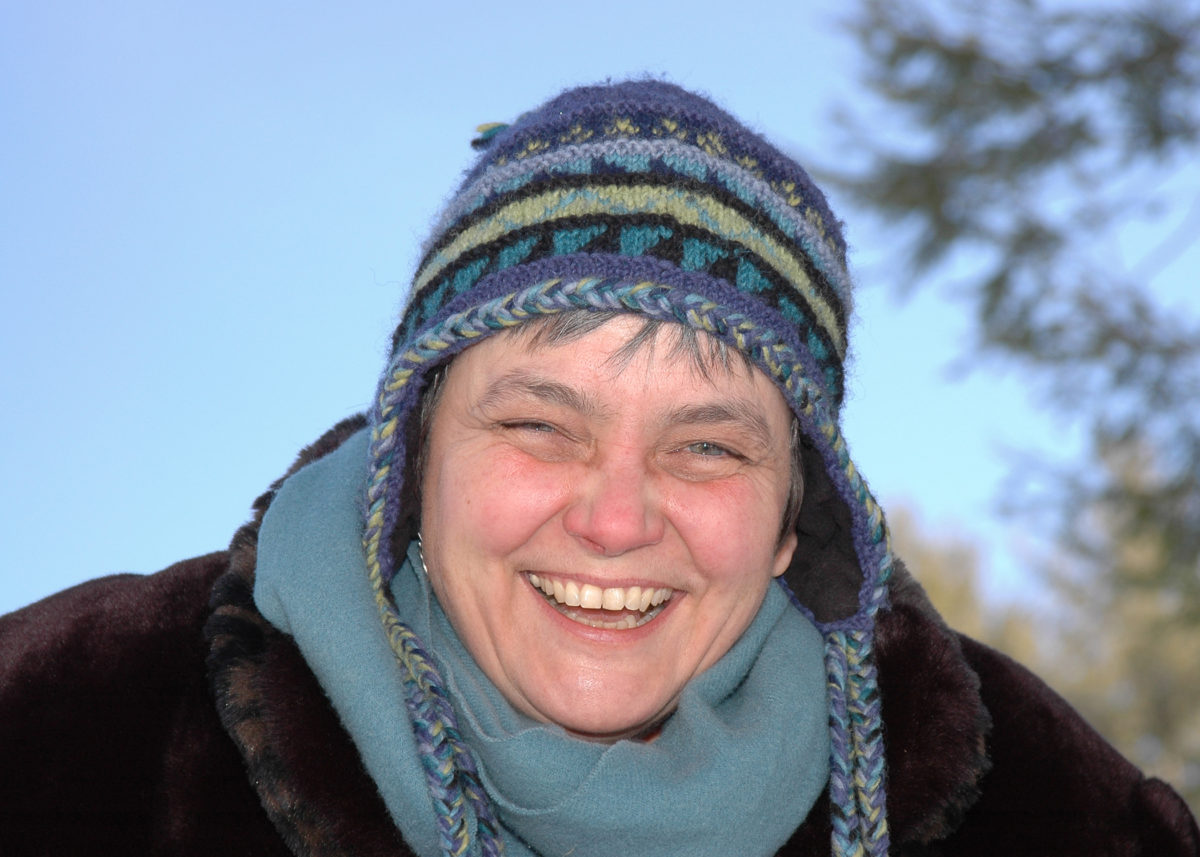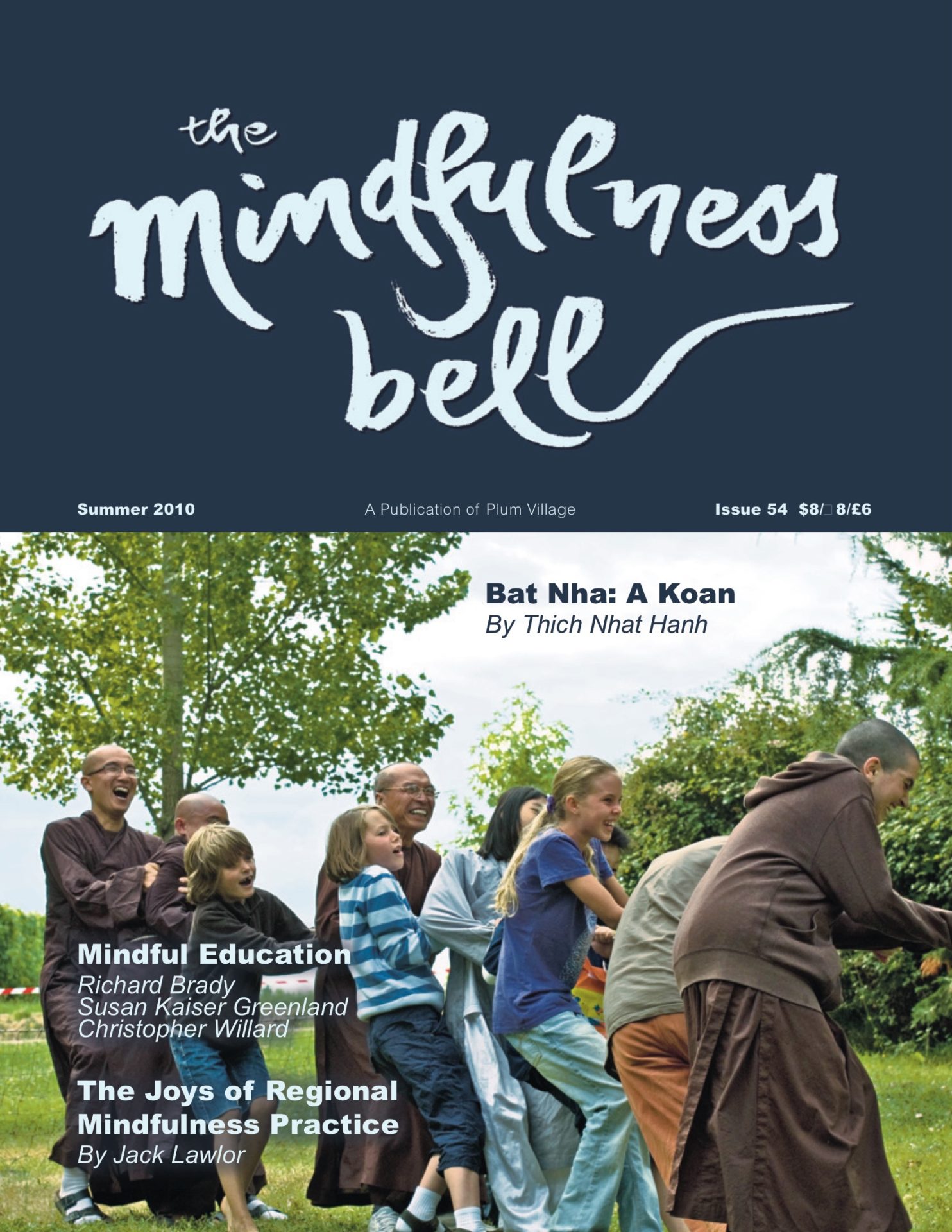By Christian McEwen

Twenty-six hundred years ago a little Indian boy lay resting in the shade under a rose-apple tree. It was the time of the spring plowing, and he watched the men and oxen as they worked their way up and down the lengthy furrows. In the newly turned soil, he could see the frantic insects struggling to escape, and the torn shoots of grass where those insects had laid their eggs.
By Christian McEwen

Twenty-six hundred years ago a little Indian boy lay resting in the shade under a rose-apple tree. It was the time of the spring plowing, and he watched the men and oxen as they worked their way up and down the lengthy furrows. In the newly turned soil, he could see the frantic insects struggling to escape, and the torn shoots of grass where those insects had laid their eggs. He felt strangely sorry for them, as if they were members of his own family. But at the same time he was thoroughly awake to the beauty of the day: the birds singing in the clear sky, the sweet scent of the apple blossom. Both/and, he felt: both sorrow and joy were possible, and an all-encompassing peace.
That child was Siddhartha Gautama, who would grow up to be the Buddha. Years later, battling to reach enlightenment, he would remember how he had lain there in the cool shade under the rose-apple tree. Perhaps after all one didn’t have to strive for liberation. “Can one reach God by toil?” asks Yeats in his autobiography—and immediately answers his own question. “He gives himself to the pure in heart. He asks nothing but attention.”
Such attention is at the core of spiritual practice. Thich Nhat Hanh undertakes every task in the spirit of mindfulness, from tracing the word “BREATHE” in his warm, robust calligraphy to mulching the monastery garden. At Plum Village each day follows the same simple pattern, interweaving prayers and meditation with meals, community work, and private recreation. Because talk is only allowed at certain times, one’s mouth and busy brain are forced to take a rest, making space for a more widely focused attention in which each moment shines from within: the small frogs crouched on their lily pads at Lotus Pond, the roo-coo of the doves, the young nun in her gray habit playing football all by herself one quiet afternoon.
It is of course one thing to find tranquility in the rolling countryside of the Dordogne, surrounded by vine-yards and orchardsand rustling willow trees, and quite another to locate it in the modern world. As Max Picard says, bleakly, “Thegreat cities are like enormous reservoirs of noise. Noise is manufactured in the city, just as goods are manufactured.” Most of us have learned to live with the whirr and click of the refrigerator, the bleep of cell phones, the omnipresent hum of the computer. But that doesn’t mean we actually enjoy those sounds. Alexander Graham Bell, who invented the telephone, was one of the first to suffer from its interruptions, even though he himself was partially deaf. His preference was to sleep till noon. But again and again the phone would shrill him awake. A colleague remembers seeing the phone in his room stuffed with paper or wound about with towels.
“Little did I think,” said Bell, “when I invented this thing, that it would rise up to mock and annoy me.”
Despite the clarion call of his name, Bell clearly valued time for ruminative reflection. One feels he would have sympathized with the Buddhist monks, and with the writers, artists, and musicians who have spoken out in defense of silence. “I think I am probably in love with silence, that other world,” says poet Jorie Graham. “And that I write, in some way, to negotiate seriously with it.” Jane Hirshfield agrees. “I’ve long believed that silence must be one of a poet’s closest friends. If I were not able to enter the silence before words, how could I find any words I don’t already know yet?” Silence for them is resonant, inspiring, part of what makes possible the kind of inner listening that gives rise to poetry. This is something even children understand.
Several years ago I was teaching poetry at a big school in the South Bronx. The desks were drawn together into groups of four and the students were gathered round them, calm and concentrated. Gentle music was playing in the background. Slowly, the classroom teacher and I moved around the room, glancing over the children’s shoulders, disentangling the sweet chicken scratch of their poems. Suddenly one of the little girls looked up at me. “I like you,” she said earnestly. “I like you too,” I told her, smiling, startled at the unexpected compliment.
But when I thought about it later, I realized that it wasn’t me she liked as much as the atmosphere I’d helped to generate: something different from the usual noisy classroom and, I imagined, from the ruckus of radio and television and frenetic family life that surrounded her at home. Children enjoy silence, I remind myself, looking at the words of nine-year-old Joseph from a little school in upstate New York:
Silence is goldish blue.
It is like seeing the moon in the rain.
Silence is like standing by the window
when all you can see is the sound of the wind blowing past you.
It is like standing in front of a gate in heaven.
All of us, child or adult, need time to find our way to that heavenly gate, time to sit back and listen to the sounds outside and to our own half-formed thoughts, to attend to the call of the birds and the roar of the air conditioner, and to our own interior voices as well: to let silence spiral deeper into silence.
References:
Bell, Alexander Graham, quoted in Howard Mansfield, op.cit.
Joseph’s poem in The Alphabet of the Trees: A Guide to Nature Writing, edited by Christian McEwen and Mark Statman (New York City: Teachers & Writers Collaborative, 2000).
Mansfield, Howard: The Same Axe, Twice: Restoration and Renewal in a Throwaway Age (Hanover and London: University Press of New England, 2000).
Picard, Max: The World of Silence, translated by Stanley Goodman (Washington DC: Regnery Gateway, 1948, 1986).

Christian McEwen grew up in the Borders of Scotland. She is a member of the West County Sangha in Shelburne Falls, MA. She has just finished writing Ordinary Joy: The Necessary Art of Slowing Down, from which this excerpt is taken. She can be reached at www.christianmcewen.com.

